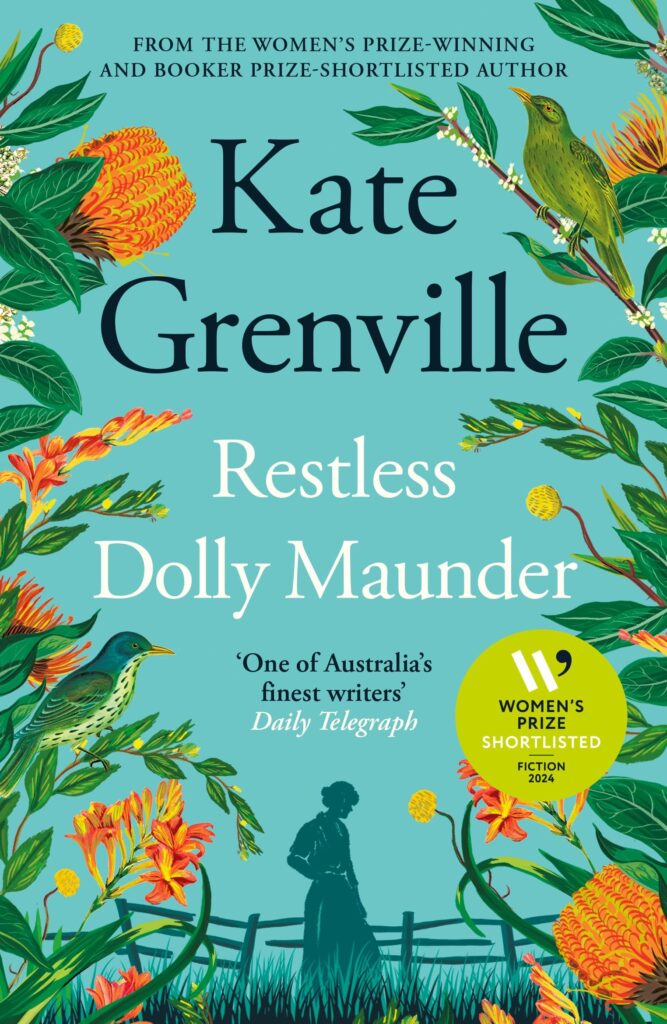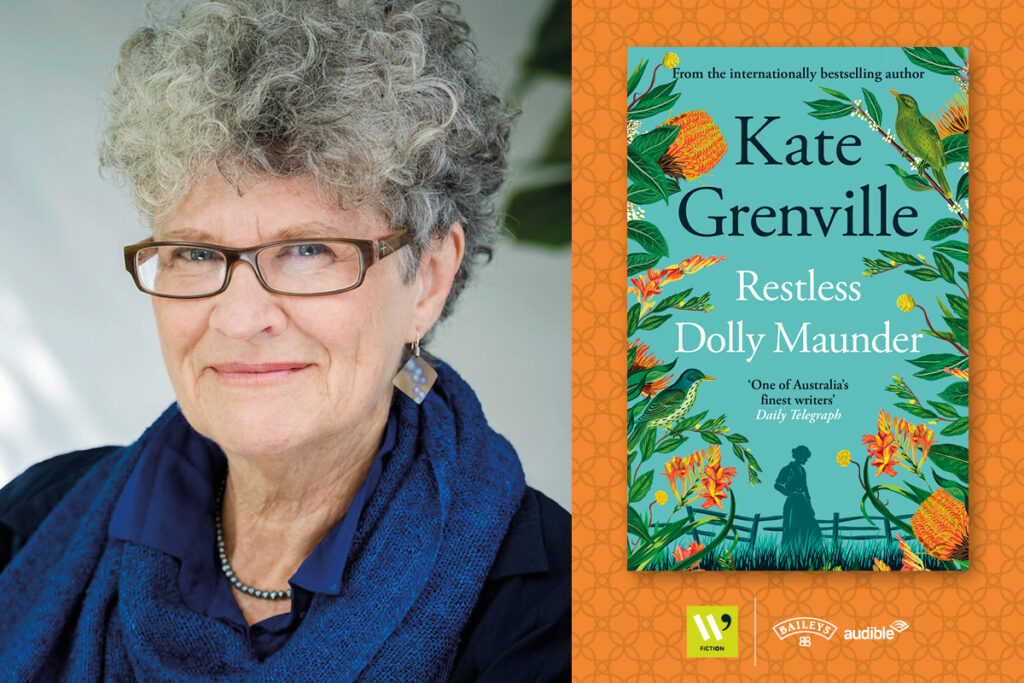Restless Dolly Maunder by Kate Grenville is a subversive, triumphant tale of a pioneering woman working her way through a world of limits and obstacles, who is able – despite the cost – to make a life she could call her own.
Growing up in a poor farming family in rural New South Wales, Dolly spends her life doggedly pushing at the doors in front of her. A husband and two children do not deter her from searching for love and independence.
[It] follows the life of Dolly, who really is restless. It begins in the 1880s in rural Australia, and it follows Dolly’s ambitions to live a bigger life than the one she’s been given.
Indira Varma

Describe your book in one sentence as if you were telling a friend.
Based on my own feisty grandmother, it’s the story of a woman determined to seize a life for herself, at a time when women were supposed to stay at home and be happy with a narrow life.
What inspired you to write your novel?
In the old sepia photos, the women from that generation look like another species, and unless they were gentry they didn’t leave any writing to tell us what they really thought about their lives. I wanted to imagine my way into the inner life of a woman of that time and place and class, and understand what urged her to push with such determination at the limits of her world.
Which part of the book was the most fun to write? Which was the most challenging?
Dolly grew up on a poor farm under the thumb of her father, and married because there wasn’t much alternative. The challenge was to write vividly about her lack of choices as a young woman, but not make her look like a passive victim. The huge pleasure in the writing was watching her get her hands on the levers of her life at last, and share her exhilaration. was stopped from doing what she longed to – train as a teacher, and had no choice but to get married
If you could take one book to a desert island, what would it be and why?
I’m not religious, but the Bible offers what you’d need on a desert island – a book full of stories that are open-ended and mysterious but familiar enough to keep you trying to make human sense of them.
Where is your favourite place to write?
A house outside Sydney overlooking water and bush, watching the tide come in and out over the sands of the estuary.
If you hadn’t been a writer, what would you be doing now? Where would you be?
I started my working life as a forgetful, messy, disorganised public servant and I’d probably still be that now. Be glad I’m not in charge of anything!








